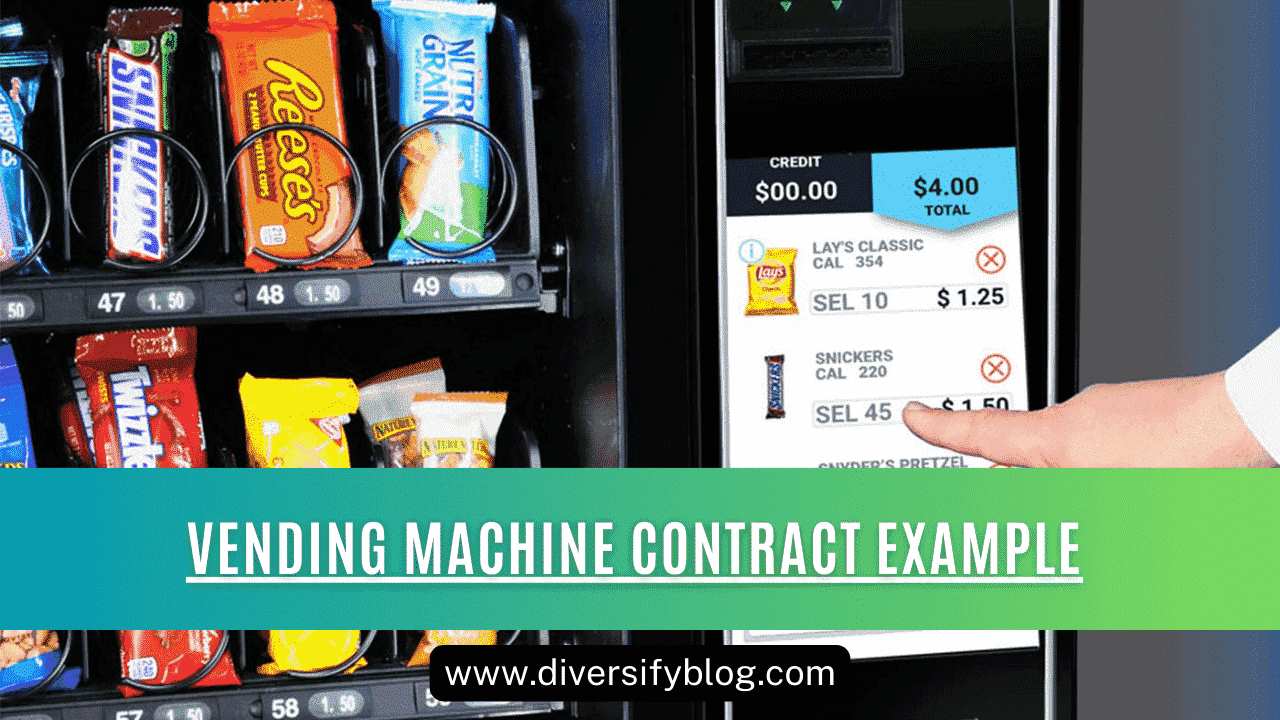1-Introduction to Dropshipping in the UK:
Welcome to the introduction to dropshipping in the UK, where we explore the innovative world of eCommerce without the hassle of inventory management. Dropshipping has revolutionized how businesses operate online and offers entrepreneurs an opportunity to sell products without the need for upfront investment in stock. In the UK, this business model has gained popularity due to its low barrier to entry and potential for significant profitability. Let’s uncover below ”How To Start Dropshipping In The UK: A Step By Step Guide For Beginners:”
Table of Contents
In this guide, we will delve into the fundamentals of dropshipping in the UK, from understanding how it works to practical steps for setting up your own dropshipping venture. Whether you’re new to eCommerce or looking to expand your business horizons, mastering dropshipping in the UK can open doors to lucrative opportunities in the dynamic online marketplace. Let’s explore how you can start and thrive in the world of UK dropshipping.
Key Considerations for Starting Dropshipping in the UK
To successfully launch your dropshipping venture in the UK, consider the following key factors:
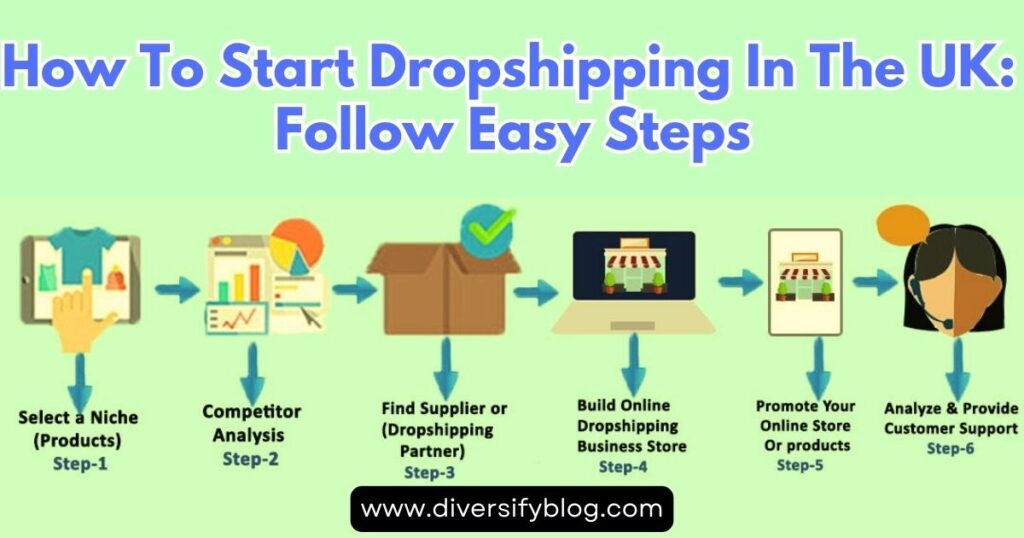
1. Product Research and Selection: Begin by identifying high-demand products that resonate with UK consumers. Conduct thorough market research to understand trends and consumer preferences.
2. Reliable Suppliers: Partner with reputable dropshipping suppliers, both domestically and internationally. Ensure they offer quality products, competitive pricing, and reliable shipping options to maintain customer satisfaction.
3. Choosing the Right Platform: Select an eCommerce platform that suits your business needs and goals. eBay UK, Shopify UK, and Wix UK are popular choices, each offering unique features to help you build and manage your online store effectively.
4. Legal and Compliance: Understand UK consumer laws, tax obligations, and product regulations. Ensure compliance with legal requirements to avoid potential pitfalls and build trust with your customers.
5. Marketing Strategies: Implement effective marketing strategies to drive traffic to your store and generate sales. Utilize social media marketing, SEO techniques, and paid advertising to increase visibility and attract customers.
6. Financial Planning: Calculate your startup costs, including platform fees, initial inventory purchases, and marketing expenses. Plan your budget wisely to manage costs and optimize profitability as you scale your business.
7. Customer Service Excellence: Provide exceptional customer service to build trust and loyalty. Promptly respond to inquiries, handle returns efficiently, and prioritize customer satisfaction to foster long-term relationships.
02-What Is Dropshipping And How Does It Work In The UK?
Right, mate, let’s get into the basics of dropshipping, especially how it works over here in the UK. Think of dropshipping as running a shop, but without having to stock any of the items yourself. Instead, you team up with suppliers who handle the inventory and shipping for you.
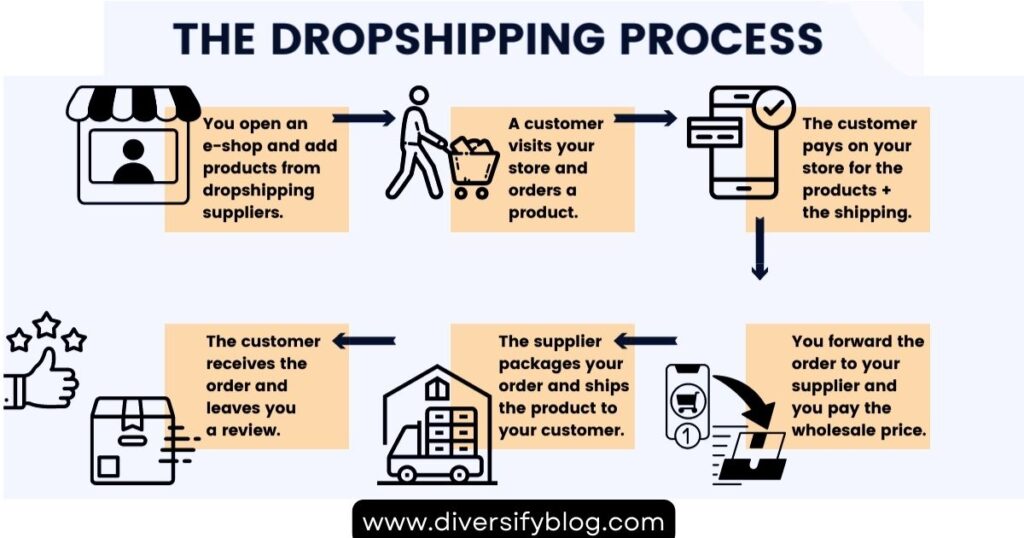
Here’s how it goes:
- Set Up Your Online Store: First, you set up an online store where customers can browse and buy products. This could be on a platform like Shopify, eBay, or even your own website.
- List Products: Next, you list products on your store, but you don’t actually hold any stock. You just display items that your suppliers have. These could be anything from phone cases to home decor.
- Customer Orders: When a customer places an order on your store, they pay you the retail price.
- Place Order with Supplier: You then place the same order with your supplier, but at a lower wholesale price. So, if your customer bought a phone case for £20, you might buy it from your supplier for £15.
- Supplier Ships the Product: Your supplier then ships the product directly to your customer. You never handle the product yourself.
- Profit: The difference between what the customer paid you and what you paid the supplier is your profit. So, in our phone case example, you’d make £5.
The beauty of this model is that you don’t need a big budget to start. You only pay for the product after you’ve made a sale. Plus, you don’t need to worry about storing or shipping items, which keeps things simple and low-risk.
In the UK, dropshipping is perfectly legal, as long as you follow the rules – like avoiding counterfeit items and paying your taxes. With the right products, reliable suppliers, and good customer service, you can start a successful dropshipping business right here.
Does that make sense, mate? It’s all about setting up your shop, connecting with suppliers, and focusing on marketing and customer service to make those sales.
03-The Best UK Dropshipping Suppliers:
Choosing the Right Supplier for Your Business:
- Research and Comparison: Conduct thorough research and compare multiple suppliers to identify the best fit for your business needs. Consider factors such as product availability, pricing, shipping options, and supplier reputation.
- Supplier Reviews: Read reviews and testimonials from other dropshippers to gauge supplier reliability and customer satisfaction levels.
- Trial Orders: Consider placing trial orders with potential suppliers to assess product quality, packaging, and delivery times firsthand before committing to a long-term partnership.
Dropshipping Supplier List:
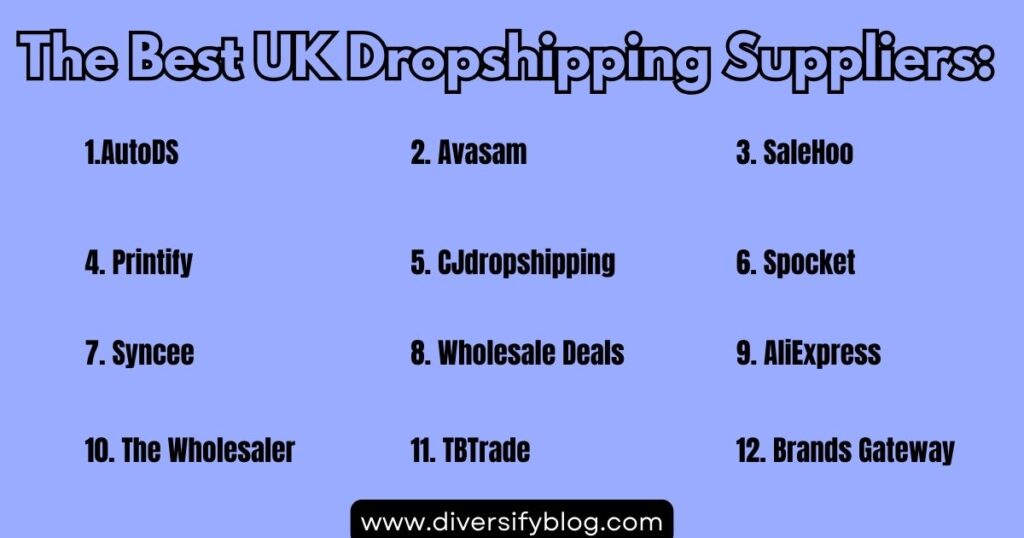
1. AutoDS
AutoDS is a comprehensive dropshipping tool designed to automate and streamline the dropshipping process. It offers a range of features including product research, price monitoring, order automation, and customer support integration. For those wondering “How To Start Dropshipping In The UK,” AutoDS simplifies the complexities of managing multiple suppliers and ensuring timely deliveries to UK customers. By using AutoDS, UK-based dropshippers can save time and enhance efficiency, ultimately boosting their business’s performance.
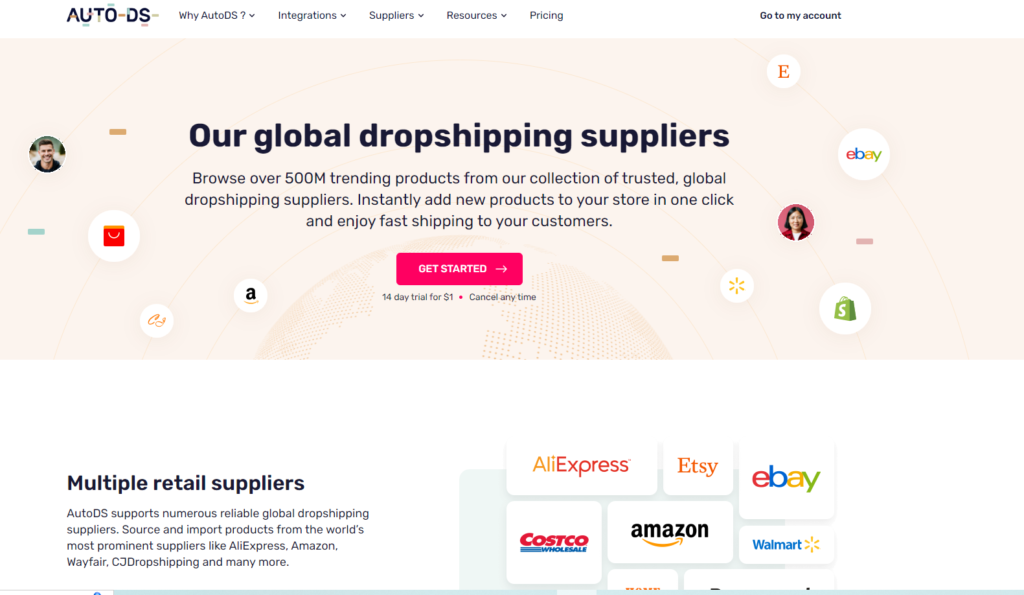
2. Avasam
Avasam is a UK-based dropshipping platform that connects sellers with reliable suppliers. It offers automated order processing, real-time stock updates, and a wide range of products. For entrepreneurs exploring “How To Start Dropshipping In The UK,” Avasam provides a local solution with a focus on UK suppliers, ensuring faster shipping times and better customer satisfaction. The platform’s integration with major e-commerce platforms makes it easy to start and scale a dropshipping business in the UK.
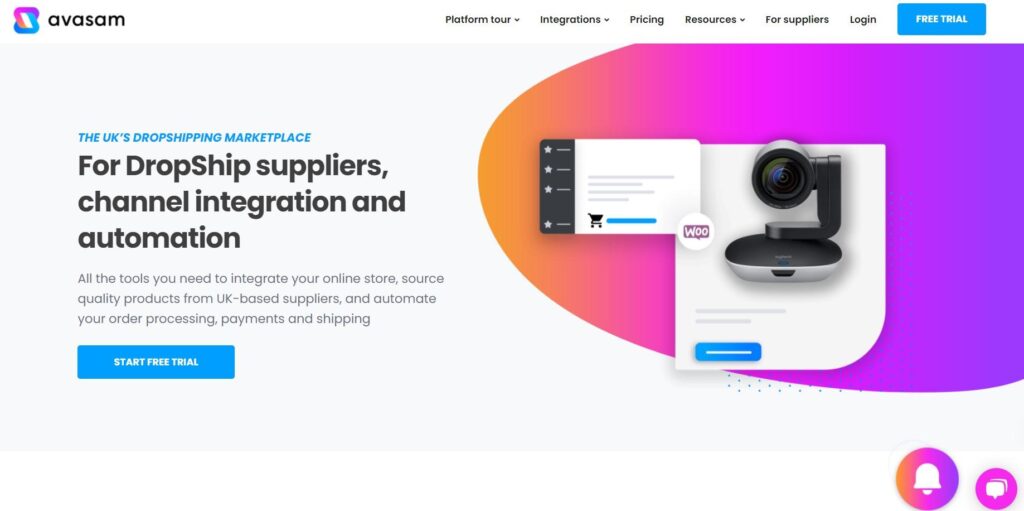
3. SaleHoo
SaleHoo is a directory of wholesale suppliers and a research tool that helps dropshippers find profitable products. It includes a list of vetted suppliers, ensuring reliability and quality. For those starting with “How To Start Dropshipping In The UK,” SaleHoo offers valuable insights and resources, making it easier to identify high-demand products and trustworthy suppliers. This platform is particularly beneficial for new dropshippers looking to navigate the UK market effectively.
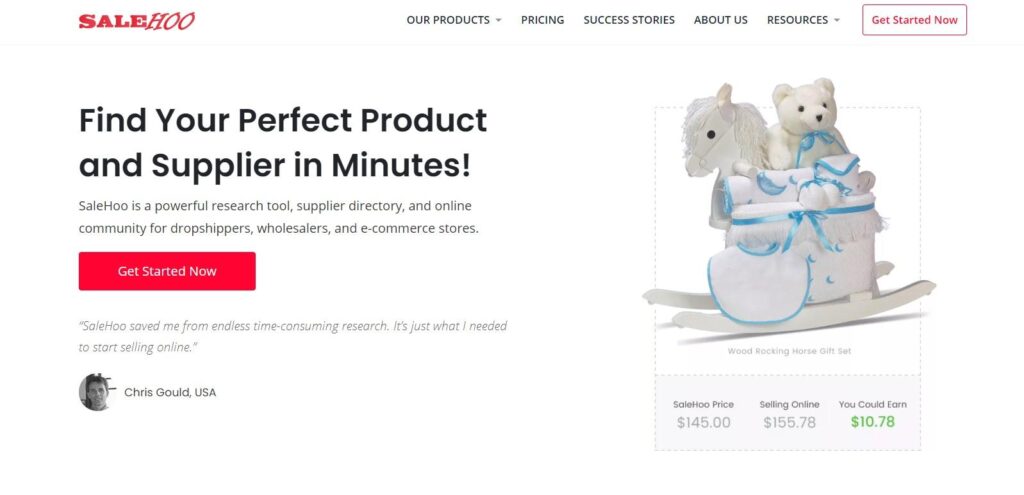
4. Printify
Printify is a print-on-demand service that allows dropshippers to sell custom-designed products. It handles the production and shipping of items like T-shirts, mugs, and phone cases. When considering “How To Start Dropshipping In The UK,” Printify offers a unique opportunity to create and sell personalized products without holding inventory. With production partners in the UK, Printify ensures faster delivery times and high-quality products for UK customers.
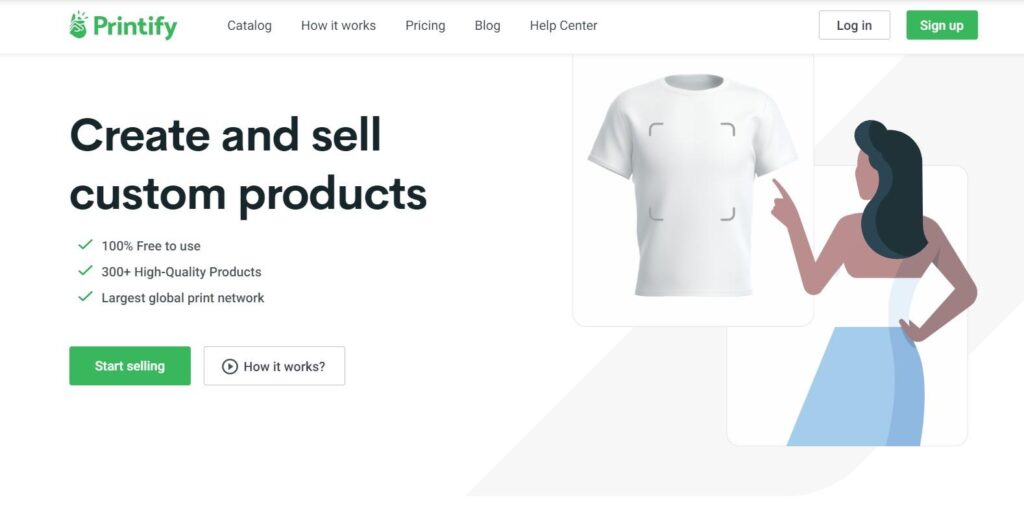
5. CJdropshipping
CJdropshipping is a global dropshipping platform that provides sourcing, warehousing, and shipping services. It offers a wide range of products and a user-friendly interface. For those interested in “How To Start Dropshipping In The UK,” CJdropshipping presents a robust solution with warehouses in various locations, including the UK. This ensures quicker shipping times and competitive pricing, helping UK dropshippers meet customer expectations.
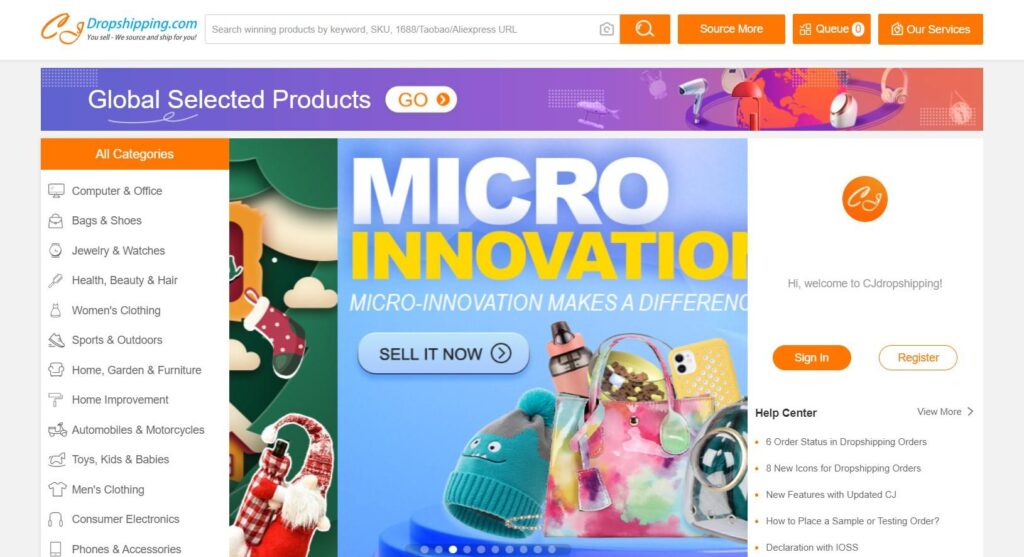
6. Spocket
Spocket is a dropshipping marketplace that connects sellers with suppliers from the US and Europe. It offers high-quality products with fast shipping times. If you’re exploring “How To Start Dropshipping In The UK,” Spocket’s emphasis on European suppliers ensures that UK customers receive their orders promptly. The platform’s integration with major e-commerce sites and its focus on premium products make it a great choice for UK dropshippers.
7. Syncee
Syncee is an e-commerce app that helps dropshippers find products and suppliers. It provides a marketplace of reliable suppliers and automated product updates. For those considering “How To Start Dropshipping In The UK,” Syncee offers an easy-to-use platform with access to a wide range of products suitable for the UK market. Its automated features simplify inventory management and order processing, making it an ideal choice for UK-based drop shippers.

8. Wholesale Deals
Wholesale Deals is a UK-based platform that offers a directory of wholesalers and dropshipping suppliers. It provides detailed information about suppliers and their products. If you’re wondering “How To Start Dropshipping In The UK,” Wholesale Deals is a valuable resource for finding reliable UK suppliers. The platform’s focus on the UK market ensures that dropshippers can source products locally, reducing shipping times and costs.
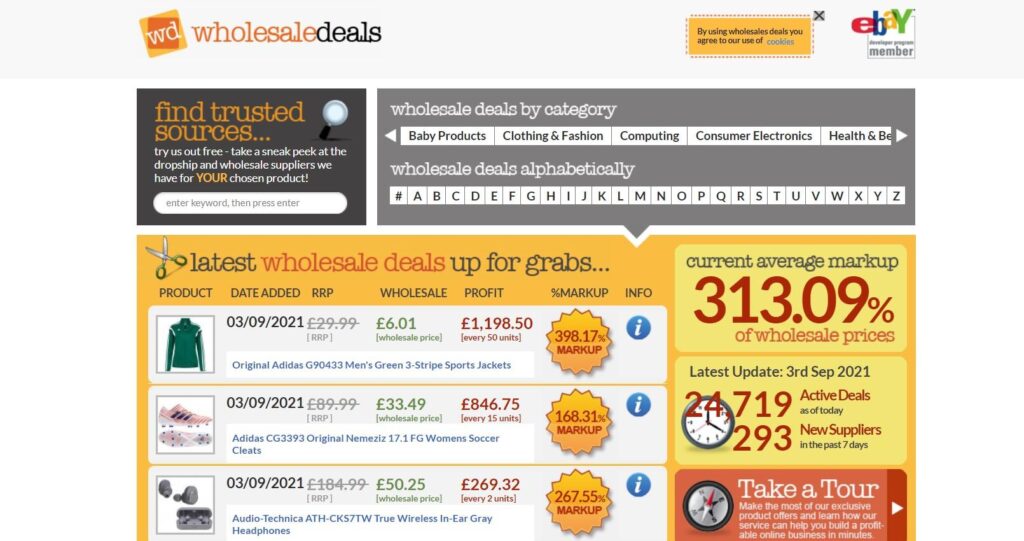
9. AliExpress
AliExpress is a global e-commerce platform that offers a vast range of products from Chinese suppliers. It is popular among dropshippers for its low prices and extensive product selection. For those starting with “How To Start Dropshipping In The UK,” AliExpress can be a cost-effective option. However, it’s important to consider shipping times and choose suppliers that offer ePacket or other faster shipping methods to ensure timely delivery to UK customers.
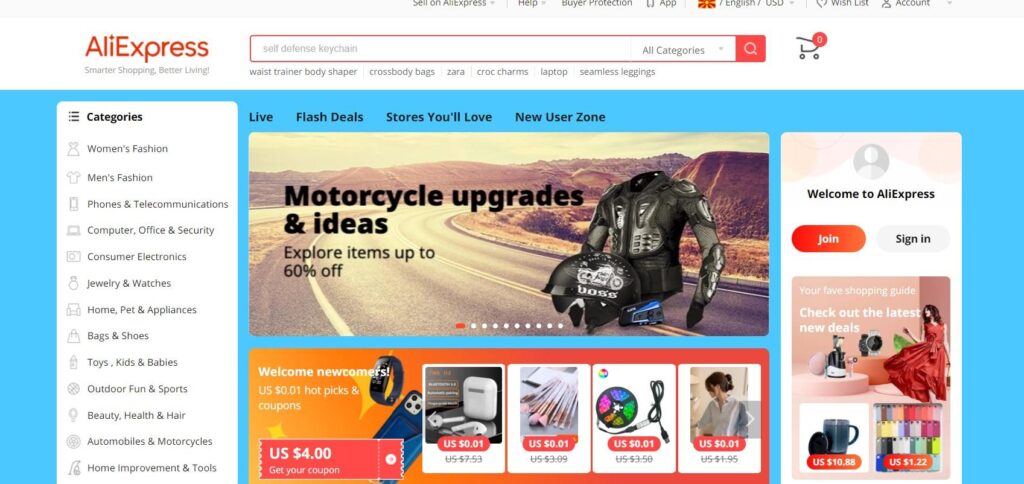
10. The Wholesaler
The Wholesaler is a UK-based directory of wholesale suppliers. It provides a list of reputable UK suppliers across various product categories. For entrepreneurs interested in “How To Start Dropshipping In The UK,” The Wholesaler offers a local solution, making it easier to find and connect with suppliers that cater to the UK market. This platform helps dropshippers ensure quicker delivery times and better customer service.
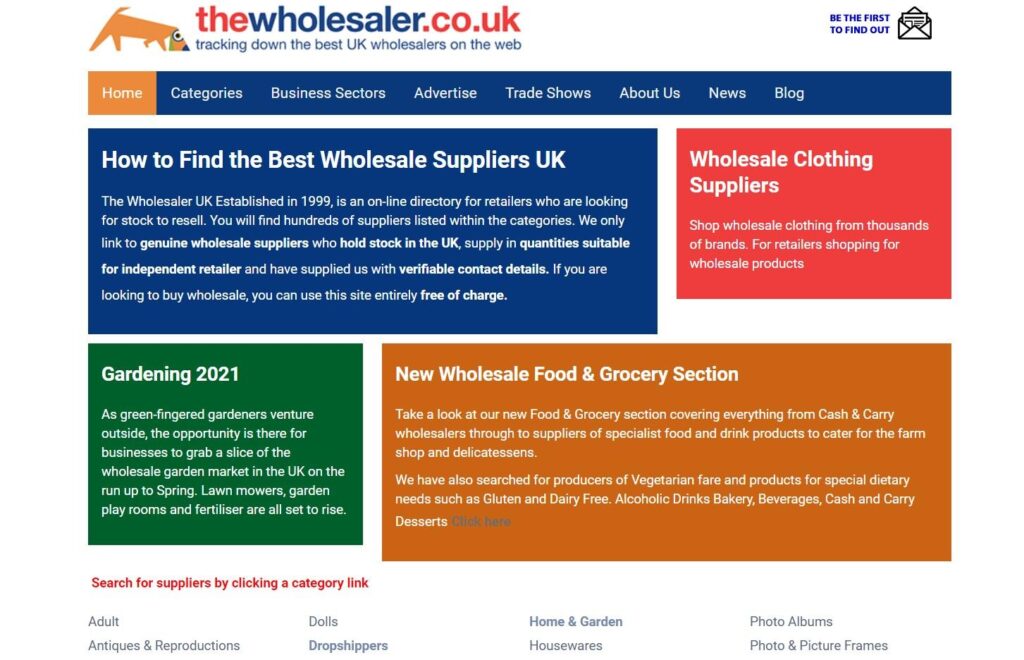
11. TBTrade
TBTrade is a UK-based dropshipping and wholesale platform that offers a range of products from trusted suppliers. It provides automated order processing and inventory updates. For those exploring “How To Start Dropshipping In The UK,” TBTrade’s focus on UK suppliers ensures faster shipping and reliability. The platform’s features streamline the dropshipping process, making it easier for UK dropshippers to manage their businesses.
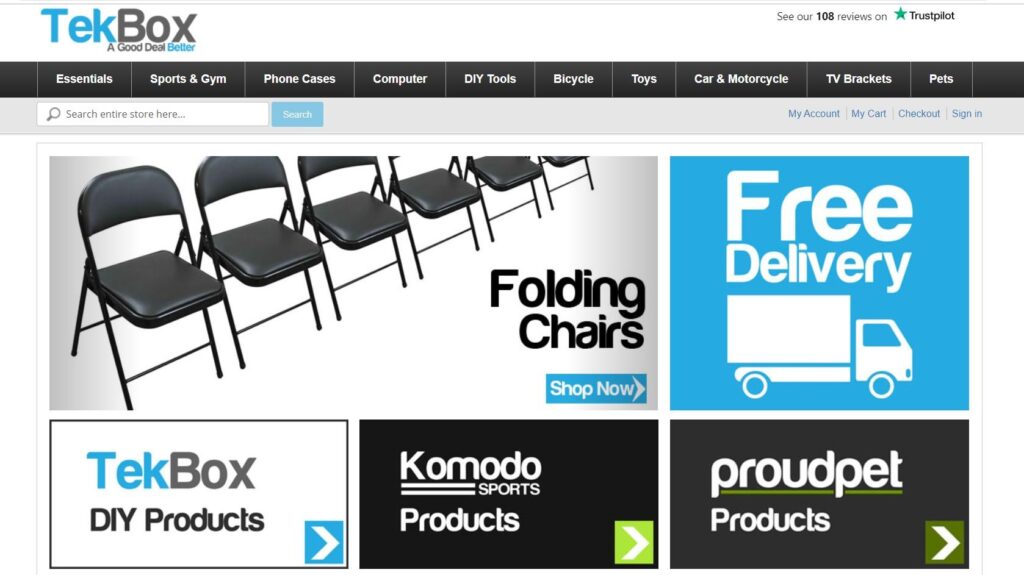
12. Brands Gateway
Brands Gateway is a dropshipping platform that specializes in luxury fashion items. It offers a wide selection of high-end brands and products. If you’re considering “How To Start Dropshipping In The UK,” Brands Gateway provides an opportunity to sell premium products with a higher profit margin. The platform’s focus on quality and its integration with e-commerce platforms make it a great choice for UK dropshippers targeting the luxury market.

Each of these platforms offers unique advantages for those looking to start a dropshipping business in the UK. By choosing the right platform, UK-based entrepreneurs can streamline their operations and enhance their chances of success in the competitive e-commerce market.
Partnering with the best dropshipping suppliers in the UK ensures that you can offer high-quality products, streamline operations, and deliver exceptional service to your customers. By prioritizing supplier reliability and product excellence, you can build a strong foundation for a successful dropshipping business in the UK.
04-Is Dropshipping Legal in the UK?
So, you might be wondering, is dropshipping UK legal? The short answer is yes, it absolutely is. But there are a few things we need to keep in mind to ensure we’re running our business properly and within the law.

Key Points for Legal Dropshipping in the UK:
- Intellectual Property Rights:
- We need to avoid selling items that are on the eBay VeRO Database, which means they are protected by intellectual property rights. This includes branded goods without permission from the brand.
- Product Restrictions:
- Stay clear of selling hazardous, toxic, or age-restricted products. This ensures we’re not breaking any laws related to safety and age restrictions.
- Consumer Laws:
- The UK has specific consumer protection laws. We need to ensure our products meet these standards and that our customers have clear information about their rights, including return policies.
- Taxes:
- It’s crucial to keep up with our tax obligations. This includes paying income tax, VAT (Value Added Tax), and possibly customs duties if importing goods from outside the UK. It’s wise to consult with an accountant to get a clear understanding of our tax responsibilities.
- Supplier and Selling Channel Compliance:
- Often, our suppliers and selling platforms will help ensure compliance with local laws. Still, it’s important for us to stay informed and proactive.
Simplifying Compliance:
- Choose Reliable Suppliers: Work with reputable suppliers who understand and comply with UK regulations.
- Clear Product Information: Make sure your product listings are clear and accurate to avoid misleading customers.
- Stay Updated: Regulations can change, so it’s important to stay updated with any new laws that might affect your business.
Running a dropshipping UK business is straightforward as long as we adhere to these rules. It’s all about being mindful of what we’re selling, keeping up with taxes, and ensuring we provide accurate product information to our customers. This way, we can focus on growing our business without any legal hiccups.
05-Tax & Business Obligations for UK Dropshipping:
Understanding the tax and business obligations when running a dropshipping business in the UK is essential for smooth operations and compliance with the law. Here’s a detailed look at what you need to know:
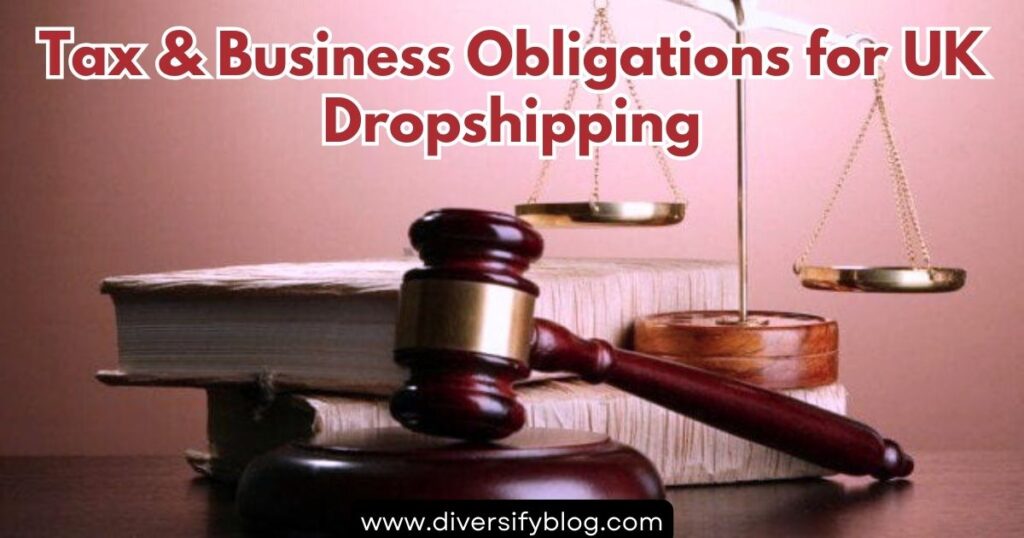
Key Tax Obligations:
- Income Tax:
- This is the tax you pay on your profits from your dropshipping business. In the UK, income tax rates vary depending on how much profit you make. It’s advisable to consult with a local accountant to understand your specific tax liabilities.
- VAT (Value Added Tax):
- VAT is a consumption tax added to the price of goods and services. If your business reaches a certain turnover threshold (£85,000 in a 12-month period as of 2022), you must register for VAT with HM Revenue and Customs (HMRC). This involves charging VAT on your sales and submitting regular VAT returns to HMRC.
- Customs Duty:
- If you import goods from outside the UK, you may be liable to pay customs duty. The amount depends on the value and type of goods imported. It’s important to factor these costs into your pricing strategy to avoid unexpected expenses.
Business Obligations:
- Company Registration:
- Depending on your business structure and turnover, you may need to register a company with Companies House in the UK. This formalizes your business and may offer legal protections, depending on the type of company you choose (e.g., sole trader, limited company).
- Accounting and Record-Keeping:
- Keeping accurate financial records is crucial for tax compliance and business planning. This includes documenting sales, expenses, VAT records, and any relevant invoices or receipts.
Simplifying Tax Compliance:
- Accountant Consultation: Seek advice from a qualified accountant who understands UK tax laws and regulations. They can help you navigate complex tax obligations and ensure compliance.
- VAT Registration: Monitor your turnover to determine when you need to register for VAT. Registering on time avoids penalties and allows you to reclaim VAT on business expenses.
- Customs Duties: Understand the implications of importing goods from overseas suppliers. Factor customs duties into your product pricing and shipping costs to maintain profitability.
Understanding and fulfilling your tax and business obligations ensures your dropshipping business in the UK operates smoothly and legally. By staying informed and seeking professional advice when needed, you can focus on growing your business and serving your customers effectively.
06-How to Start a Dropshipping Business in the UK:
Starting a dropshipping business in the UK can be an exciting venture, offering flexibility and the potential for high profitability. Here’s a step-by-step guide to help you navigate through the process and establish a successful online store:
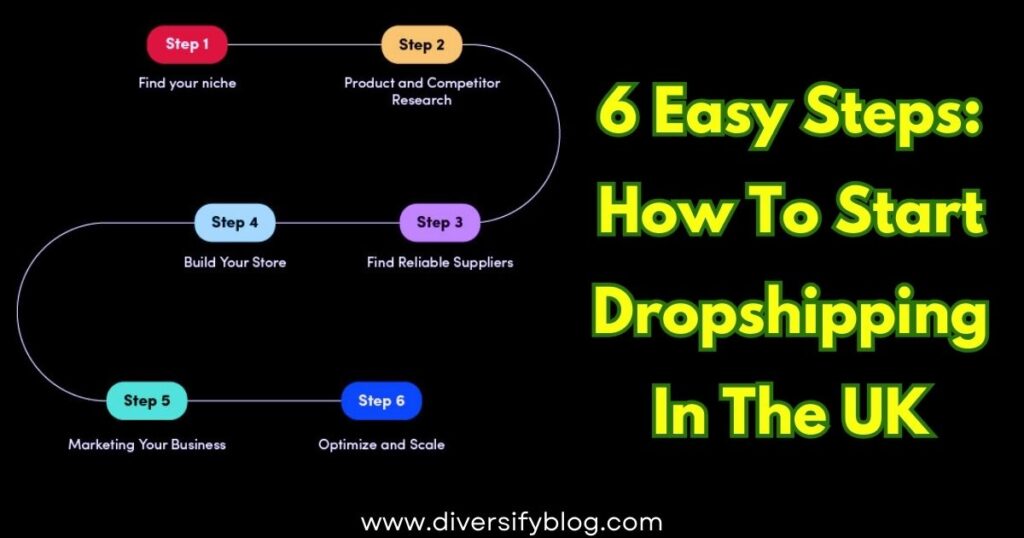
Step-by-Step Guide:
- Conduct Product Research:
Conducting thorough product research is crucial for identifying profitable opportunities in the UK market. Start by analyzing trends and consumer preferences. Look for products that are in high demand and have the potential for steady sales. Tools like Google Trends, social media platforms, and market research reports can provide valuable insights into popular products and niche markets.
Example: Suppose you’re interested in selling fitness equipment. Research shows a growing demand for home fitness gear in the UK, especially since the pandemic. Products like resistance bands, yoga mats, and dumbbells could be lucrative options to explore. - Select a Dropshipping UK Supplier:
Choosing reliable suppliers is essential for ensuring smooth operations and customer satisfaction. Look for suppliers based in the UK or those with efficient shipping options to the UK. Evaluate suppliers based on product quality, pricing, shipping times, and their ability to handle returns and customer inquiries promptly.
Example: Opting for UK-based suppliers reduces shipping times for your customers, enhancing their shopping experience. Suppliers with a diverse product range and competitive pricing can also help you offer a wider variety of products in your store. - Choose a UK Selling Channel:
Selecting the right selling platform is crucial for reaching your target audience and maximizing sales. Platforms like eBay UK, Shopify UK, and Wix UK offer robust eCommerce solutions tailored to the UK market. Consider factors such as platform fees, customization options, SEO capabilities, and integration with dropshipping tools.
Example: eBay UK provides access to a large customer base and offers promotional tools like promoted listings to increase visibility. Shopify UK, on the other hand, allows you to create a fully customizable online store with integrated marketing and analytics features. - Import Products to Your UK Store:
Once you’ve chosen your suppliers and selling platform, it’s time to import products to your online store. Use automation tools provided by your platform or third-party software to streamline the product listing process. Optimize product descriptions with relevant keywords, high-quality images, and competitive pricing to attract potential buyers.
Example: Using tools like AutoDS allows you to import products from suppliers with ease, ensuring that your inventory is always up-to-date. Automated features can help you manage pricing changes, stock levels, and product updates efficiently. - Market Your UK Dropshipping Store:
Effective marketing is essential for driving traffic to your online store and increasing sales. Implement a multi-channel marketing strategy that includes paid advertising, social media marketing, content creation, email campaigns, and influencer partnerships. Tailor your marketing efforts to resonate with your target audience in the UK.
Example: Running targeted Facebook ads or Instagram promotions can help you reach potential customers interested in your niche products. Creating engaging content, such as how-to guides or product reviews, can also attract organic traffic to your website. - Fulfill UK Customer Orders:
Timely order fulfillment and excellent customer service are key to maintaining customer satisfaction and building a loyal customer base. Use order management tools to process orders efficiently and provide customers with real-time tracking information. Consider offering expedited shipping options to enhance the shopping experience.
Example: Implementing order automation tools like Orderlytics can help you fulfill orders quickly and accurately. Integrating with reliable shipping carriers ensures that orders are delivered on time, enhancing customer satisfaction and encouraging repeat purchases. - Provide Customer Service:
Outstanding customer service is crucial for building trust and loyalty among your customers. Offer multiple channels for customer support, such as email, live chat, and a dedicated customer service team. Address customer inquiries promptly and resolve any issues or concerns to ensure a positive shopping experience.
Example: Using customer service management (CSM) tools can help you track and respond to customer inquiries efficiently. Providing proactive support and personalized assistance can differentiate your store from competitors and encourage word-of-mouth referrals.
Tips for Success:
- Stay Updated: Keep abreast of industry trends, consumer behavior, and regulatory changes affecting the UK eCommerce market.
- Optimize Operations: Continuously monitor and optimize your business processes, from product sourcing to customer service, to improve efficiency and profitability.
- Compliance: Adhere to UK regulations regarding eCommerce, tax obligations, and consumer rights to avoid legal issues and build trust with your customers.
Starting a dropshipping business in the UK requires careful planning, strategic execution, and ongoing optimization. By following these steps and leveraging the right tools and resources, you can establish a thriving online store that meets the needs of UK consumers and drives sustainable growth.
When starting a dropshipping business in the UK, selecting reliable suppliers is crucial for your success. Here’s an in-depth look at some of the top dropshipping suppliers available:
07-How Dropshipping UK Works:
Alright, let’s dive into the specifics of how dropshipping UK works. It’s a straightforward process, but there are some unique aspects to consider when operating in the UK market.

- Customer Visits Your Store: A customer in the UK visits your online store and finds a product they like, such as a phone case.
- Customer Places an Order: They place an order on your site and pay the retail price, say £20.
- Order Confirmation: You receive the order confirmation and payment from the customer.
- Order From Supplier: You then place the same order with your supplier, who charges you the wholesale price, for instance, £15. You provide your customer’s shipping details to the supplier.
- Supplier Ships the Product: The supplier ships the product directly to your customer in the UK. The packaging usually doesn’t reveal the supplier’s details, so it looks like the product came straight from your store.
- Profit: You make a profit from the difference between what the customer paid you and what you paid the supplier. In this case, you’d earn £5.
Key Points for UK Dropshipping:
- Local Suppliers: Whenever possible, work with suppliers based in the UK. This ensures faster shipping times and better customer satisfaction.
- Legal Requirements: Make sure you comply with UK laws, which include not selling counterfeit items and paying the necessary taxes.
- Customer Service: Providing excellent customer service is crucial. Happy customers are more likely to return and recommend your store to others.
Dropshipping in the UK is a brilliant way to start an online business with minimal upfront investment. You focus on marketing and customer service, while your suppliers handle the inventory and shipping. With the growing eCommerce market in the UK, there’s plenty of opportunity to make a profitable business.
Got it? It’s all about leveraging the dropshipping model to provide products to UK customers quickly and efficiently, ensuring a smooth operation and satisfied shoppers.
Key Considerations When Choosing Dropshipping Suppliers:
- Domestic UK Warehouse:
Opting for suppliers with a domestic warehouse in the UK can significantly reduce shipping times for your customers. Faster delivery enhances customer satisfaction and encourages repeat purchases.
Example: Suppliers like Wayfair UK and VidaXL UK maintain local warehouses, ensuring quick order fulfillment and timely delivery across the UK. - Diverse Product Range:
Look for suppliers that offer a wide variety of products across different categories. Having access to a diverse product range allows you to cater to various customer preferences and expand your product offerings.
Example: AliExpress UK and Banggood UK provide extensive product catalogs, ranging from electronics and home goods to fashion and accessories, catering to diverse consumer needs. - Affordable & Quality Products:
Balancing affordability with product quality is essential. Choose suppliers that offer competitive pricing without compromising on the quality of goods. High-quality products contribute to positive customer experiences and minimize return rates.
Example: Costway UK is known for offering cost-effective yet durable products, making them a preferred choice among budget-conscious consumers. - Practical Return, Shipping & Payment Policies:
Evaluate suppliers based on their return policies, shipping methods, and payment terms. Clear and flexible policies streamline operations and reduce potential conflicts with customers.
Example: Amazon UK and eBay UK provide robust shipping and return policies, ensuring seamless transactions and customer satisfaction. - Excellent Customer Service:
Partner with suppliers that prioritize customer service and support. Responsive suppliers can address queries, handle issues promptly, and maintain transparent communication throughout the dropshipping process.
Example: Go Dropship and Go Wholesale are renowned for their dedicated customer service teams, offering reliable assistance to dropshippers and resolving inquiries efficiently.
08-How to Improve Shipping Times from Outside the UK:
When dropshipping products from international suppliers, efficient shipping times are crucial for customer satisfaction and business success. Here’s how you can enhance shipping times to ensure timely delivery to your UK customers:
Understanding International Shipping:
International shipping refers to the process of transporting goods across borders from one country to another. When dropshipping, you may source products from suppliers located outside the UK, such as China or the United States. While these suppliers often offer competitive prices and a wide range of products, shipping times can vary significantly depending on the shipping method and origin country.
Strategies to Improve Shipping Times:
- Choose Suppliers with Closer Geographical Locations:
Opt for suppliers that have warehouses or distribution centers in countries closer to the UK, such as within the European Union (EU) or neighboring regions. Shipping products from closer geographical locations can significantly reduce transit times and expedite delivery to your UK customers.
Example: Selecting products from AliExpress suppliers based in countries like the Czech Republic or Germany can shorten shipping times to the UK, typically ranging from 4 to 10 days compared to longer shipping durations from suppliers in China or the US. - Utilize Expedited Shipping Methods:
Explore expedited shipping options offered by international suppliers, such as express courier services like DHL, FedEx, or UPS. While these services may incur higher shipping costs, they often provide faster delivery times and reliable tracking updates, ensuring a smoother customer experience.
Example: Opting for DHL Express shipping from international suppliers can expedite delivery to UK customers within 3 to 5 business days, depending on the origin country and shipping service selected. - Prioritize Supplier Reliability and Shipping Policies:
Partner with reputable suppliers known for their reliable shipping practices and efficient order processing. Evaluate supplier shipping policies, including handling times, order fulfillment processes, and shipping carriers used to ensure timely delivery of customer orders.
Example: Amazon UK Marketplace offers sellers access to Amazon’s robust fulfillment network (Fulfillment by Amazon), providing fast and reliable shipping services to UK customers with comprehensive tracking and customer support. - Communicate Shipping Expectations Clearly to Customers:
Set clear shipping expectations and communicate estimated delivery times transparently to your UK customers during the checkout process. Provide tracking information promptly and proactively update customers on the status of their orders to enhance trust and satisfaction.
Example: Use automated order tracking and notification systems integrated with your ecommerce platform or dropshipping management tools like AutoDS to streamline communication and keep customers informed about their order status and shipping updates. - Monitor and Optimize Shipping Processes Continuously:
Continuously monitor shipping performance metrics, such as delivery times, shipping costs, and customer feedback. Identify areas for improvement and optimize shipping processes to minimize delays, reduce shipping costs, and enhance overall customer satisfaction.
Example: Implementing real-time analytics and reporting tools can help track shipping performance metrics and identify potential bottlenecks in the supply chain, allowing you to make data-driven decisions to improve shipping efficiency.
Importance of Timely Shipping for Customer Satisfaction:
Timely shipping plays a critical role in customer satisfaction and retention in the competitive ecommerce landscape. By improving shipping times and providing reliable delivery services to your UK customers, you can:
- Enhance Customer Experience: Delivering products promptly enhances customer satisfaction and builds trust in your brand, leading to positive reviews and repeat business.
- Reduce Order Fulfillment Issues: Minimize the risk of order cancellations or returns due to prolonged shipping times, ensuring smoother transactions and higher order completion rates.
- Boost Business Reputation: Establish a reputation for reliable shipping and efficient order fulfillment, attracting more customers and fostering long-term relationships with UK consumers.
Question and Answers:

Is Dropshipping UK Worth It?
Yes, starting a dropshipping business in the UK can be highly worthwhile. The UK eCommerce industry continues to grow, with significant revenue opportunities. In 2021 alone, the UK eCommerce sector generated £129 billion in revenue. With low initial investment requirements and the potential to reach a broad audience online, dropshipping offers considerable profit potential in the UK market.
How Do I Become A Dropshipper In The UK?
Becoming a dropshipper in the UK is relatively straightforward. Here’s a step-by-step guide:
- Research and Select Products: Identify profitable products that appeal to UK consumers and have good market demand.
- Find Reliable Suppliers: Partner with reputable dropshipping suppliers, both domestically in the UK and internationally, to source products for your online store.
- Choose a Selling Platform: Select a suitable eCommerce platform such as eBay UK, Shopify UK, or Wix UK to create and manage your online store.
- Set Up Your Online Store: Create product listings, optimize your store for SEO, and set competitive pricing to attract customers.
- Market Your Store: Implement effective marketing strategies, such as social media marketing, SEO, and paid advertising, to drive traffic to your store and generate sales.
- Manage Orders and Customer Service: Fulfill customer orders promptly, provide excellent customer support, and manage returns or inquiries efficiently.
Which Platform Is Best For Dropshipping In The UK?
Several platforms cater specifically to dropshippers in the UK:
- eBay UK: Offers a vast marketplace with built-in traffic, making it ideal for beginners looking to start quickly.
- Shopify UK: Provides a customizable eCommerce platform with powerful tools and integrations for scaling your dropshipping business.
- Wix UK: Offers an easy-to-use website builder with eCommerce capabilities, allowing you to create a professional online store from scratch.
The best platform for you depends on your specific business needs, budget, and technical skills.
How to Start Dropshipping UK with No Money?
Starting dropshipping in the UK with no money requires creativity and resourcefulness. Here are some tips:
- Use Free Selling Platforms: Start selling on platforms like eBay UK or Wix UK, which offer free basic plans to set up your store without upfront costs.
- Negotiate Credit Terms with Suppliers: Some suppliers may offer credit terms or delayed payment options, allowing you to fulfill orders before needing to pay for the products.
- Dropshipping Agreements: Establish dropshipping agreements where suppliers fulfill orders directly to customers on your behalf, eliminating the need for upfront product purchases.
Bootstrapping: Bootstrap your business by reinvesting profits into inventory and marketing, gradually expanding your dropshipping operations.
Can I Start Dropshipping for Free?
While starting dropshipping for completely free is challenging, you can minimize initial costs by using free eCommerce platforms, negotiating credit terms with suppliers, and focusing on low-cost marketing strategies. Remember, there may still be some operational costs involved, such as domain registration or advertising expenses.
How Much Does It Cost to Start Dropshipping UK?
The cost of starting a dropshipping business in the UK varies depending on factors such as your chosen platform, product selection, marketing budget, and operational expenses. Typically, initial costs may include:
- Platform Fees: Monthly subscription fees for eCommerce platforms like Shopify or Wix.
- Product Costs: Payments to suppliers for products sold, often paid per order rather than upfront.
- Marketing Expenses: Budget for advertising, SEO optimization, and social media marketing to promote your store.
- Miscellaneous Costs: Domain registration, website hosting, and potentially hiring virtual assistants or customer service support.
Overall, dropshipping in the UK allows for flexible cost management, enabling you to start with minimal investment and scale as your business grows.
Conclusion:
Starting a dropshipping business in the UK presents a compelling opportunity within the thriving eCommerce landscape. With the UK eCommerce market surpassing £129 billion in revenue, the potential for success is substantial. Dropshipping offers a low-risk entry into online retail, enabling entrepreneurs to sell products without the complexities of inventory management and logistics. By partnering with reliable suppliers and leveraging eCommerce platforms like eBay UK, Shopify UK, or Wix UK, aspiring entrepreneurs can establish and scale their businesses effectively.
Key considerations include conducting thorough product research to identify high-demand items, selecting reputable suppliers to ensure product quality and timely delivery, and understanding legal obligations such as tax requirements and consumer protection laws in the UK. Effective marketing strategies are crucial for driving traffic and sales, encompassing social media marketing, SEO techniques, and paid advertising to maximize visibility and attract customers.
Financial planning plays a pivotal role in managing startup costs and optimizing profitability. By calculating expenses like platform fees, initial inventory purchases, and marketing investments, entrepreneurs can budget effectively and scale their businesses sustainably. Providing exceptional customer service is essential for building trust and fostering long-term customer relationships, emphasizing prompt responsiveness, efficient order fulfillment, and personalized support.
In conclusion, dropshipping in the UK offers a promising avenue for aspiring entrepreneurs to enter the dynamic world of eCommerce. With a strategic approach to product selection, supplier partnerships, legal compliance, marketing efforts, financial management, and customer service excellence, entrepreneurs can navigate challenges and capitalize on opportunities in the competitive UK market. By staying informed, adaptable, and customer-focused, individuals can build successful dropshipping businesses that thrive and grow in the evolving digital landscape.











